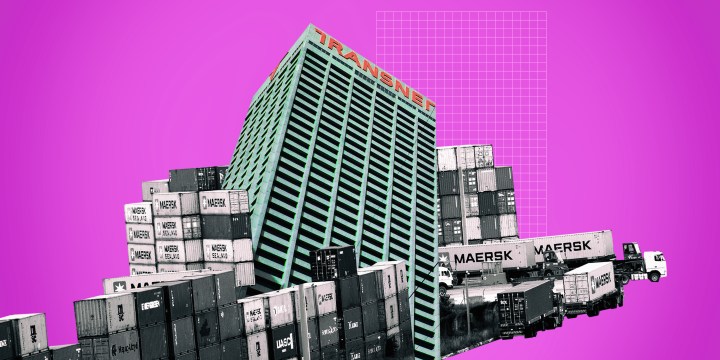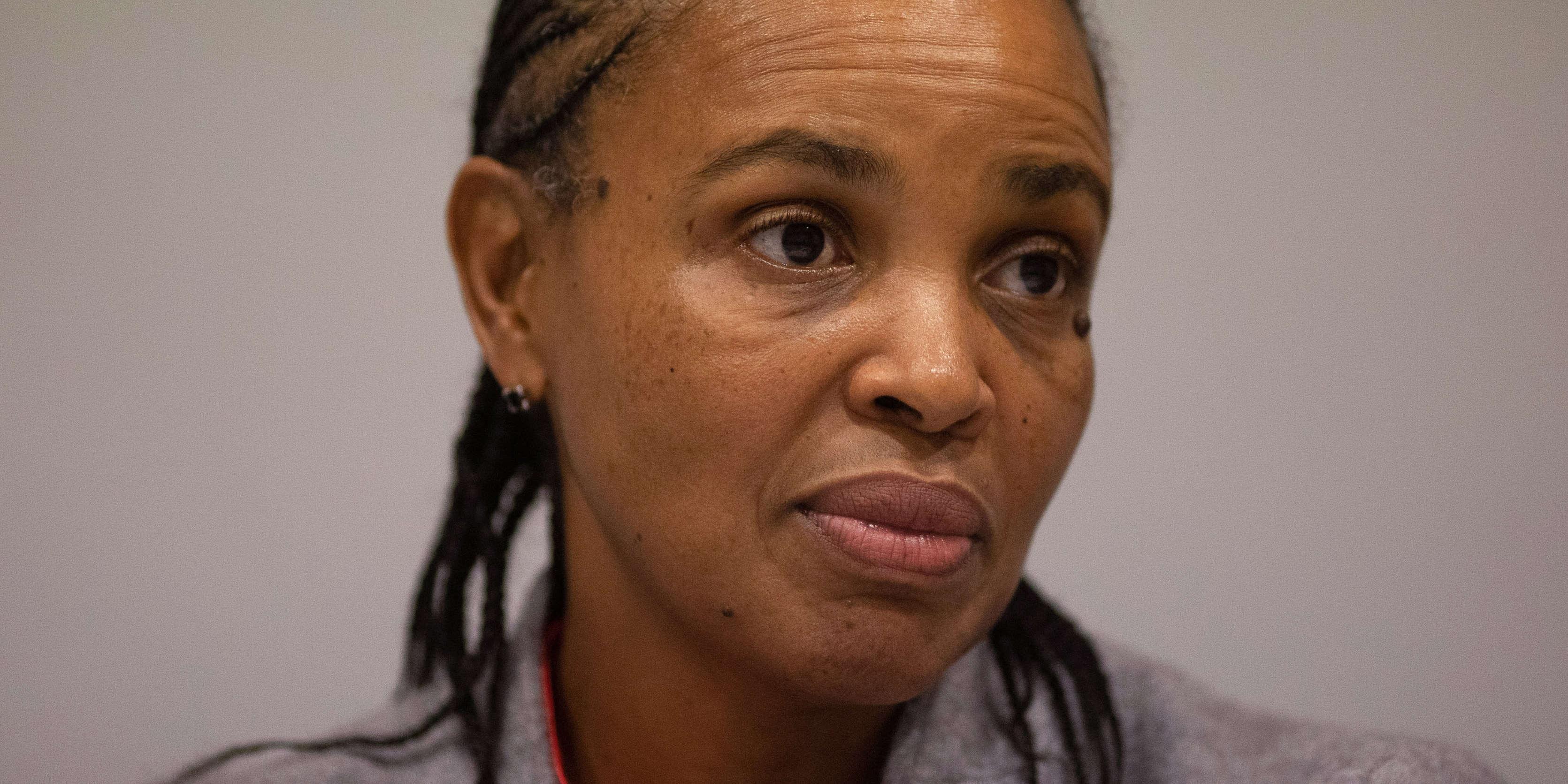REFLECTION
After the Bell: How a loss of confidence in Transnet CEO Portia Derby saw her run out of track

Eskom and Transnet, two state-owned entities that are responsible for the unrelenting energy and logistics crisis that is dragging down SA’s economy, do not have permanent CEOs.
In Eskom’s case, it has been seven months since André de Ruyter resigned, and the minister responsible for public enterprises, Pravin Gordhan, has since dithered on finding a CEO replacement. After all, it took four months for Gordhan to reject the Eskom board’s nominations for a successor to De Ruyter, pushing the board to start from scratch.
De Ruyter’s exit from Eskom took ages, even requiring the ANC national executive committee members to decide on his fate. But Portia Derby’s departure from Transnet set for the end of October, after submitting her resignation as CEO to the board last week, seemed swift.
Read more in Daily Maverick: Transnet left rudderless as both CEO Portia Derby and CFO Nonkululeko Dlamini resign
Organised business and labour have been more vocal about Derby needing to be fired because, in the three years she has been at the helm of Transnet, its ports have become the world’s worst in terms of efficiency, and its rail network has become unreliable for big industry. Transnet’s floundering operations have caused the economy and public finances to lose billions of rands, pushing the National Treasury to consider severe budget cuts for provincial departments and tax increases to avoid the government running out of money.
Then on 1 September, when Transnet unveiled its disastrous results in which it recorded a financial loss of R5.7-billion, the writing was on the wall that Derby’s days at the SOE were numbered. At the presentation of the results, Gordhan admonished Transnet executives and the board for the SOE’s terrible performance, ordering the board to deliver a turnaround strategy and a review of skills at the top within three weeks. This was a clear indication that Gordhan had lost confidence in Derby after many years of offering her political cover — even when organised business (mainly the mining industry) had written her off since late 2021.
The mining industry, which depends on Transnet trains to rail coal to markets, estimated that the SOE’s inability to move trains due to mismanagement, cable theft, and vandalism, cost the industry R50-billion in lost opportunities in 2022 alone.
Given this enormous cost and the lost tax revenue that the government could generate but isn’t, the Presidency too has lost confidence in Transnet management (led by Derby). And because of many years of underperformance and reform, the Presidency, working with private sector players, has taken control of Transnet’s strategy and is leading initiatives to fix its trains and ports.

Portia Derby, outgoing chief executive officer of Transnet SOC Ltd. (Photo: Dwayne Senior/Bloomberg via Getty Images)
This work is being done through the National Logistics Crisis Committee (NLCC), a joint initiative between the private sector and officials from the Presidency, which is closely scrutinising and intervening in turnaround failures within Transnet operations. While Transnet is involved in the work of NLCC, the SOE now has little say about its strategic direction, which is now left to the Presidency. Transent’s management and board will be further stripped of their strategy responsibility when the logistics roadmap is presented to Cabinet in the next few weeks.
The effect of implementing this roadmap is that Transnet will cede the ownership of the rail infrastructure to the Department of Transport, and the running of the more than 3,000km rail network across SA will increasingly involve the private sector, which will, in turn, pour money to upgrade the network. More private sector players and competition will be introduced in the rail network, lessening Transnent’s monopoly.
All of this work can be interpreted as the Presidency, the highest level of government, no longer trusting reform progress to be left to Transnet management and board after many years of unfilled promises.
Transnet’s crisis is not only operational but also cuts across governance and financial reporting. Last year, Transnet came close to defaulting on debt worth R17-billion, which could have triggered a debt crisis. It has a smothering debt problem of R130.1-billion, with the SOE now paying R1-billion in interest every month on this debt. The Auditor General (AG) has trashed Transnet’s bookkeeping for being shoddy as seen in its disclosed irregular, fruitless, and wasteful expenditure of more than R2.4-billion that could not be confirmed for its veracity.
Transnet CFO Nonkululeko Dlamini has been responsible for this financial reporting function (blasted by the AG) and also resigned from Transnet.
Defenders of Derby and other executives have argued that expectations for them to turn around Transnet were lofty, considering the SOE was a key site of State Capture for many years. Since early 2020, Derby, Dlamini, and other executives walked into a broken entity, whose rail and port operations suffered from many years of underinvestment, and had to navigate a layer of middle management that resisted any reforms. The problem with this defence is that Derby along with other Transnet executives, mainly Siza Mzimela, who runs the SOE’s rail division (called Transnet Freight Rail), were seen as militant, often refusing the help offered by private sector players.
Curiously, Mzimela did not resign along with Derby and Dlamini. But she is under immense pressure to do so because over the past three years, rail volumes have been languishing below 200 million tons, and incidents of cable theft on the rail network have been pervasive. Mzimela was not seen as the right fit for running Transnet trains because she was the CEO of state airlines SAA and SA Express, which were both in business rescue, but the latter is now defunct. She also had no rail experience.
This is a dangerous time for Transnet, which has become the next Eskom. Transnet will probably need a taxpayer-funded bailout and leadership that is fit, independent, and courageous enough to implement much-needed reforms.
Happy investing. DM




















 Become an Insider
Become an Insider
These cretins are destroying what’s left of the SOEs. It begs the question, is this not deliberate?
The RET faction giggling with mirth as their deployments are fulfilling their purpose?
Why wasn’t Portia Derby fired after 2 disastrous years “along with other Transnet executives, mainly Siza Mzimela who runs the SOE’s rail division (called Transnet Freight Rail), were seen as militant, often refusing the help offered by private sector players.”
Mzimela was not seen as the right fit for running Transnet trains because she was the CEO of state airlines SAA and SA Express, which were both in business rescue, but the latter is now defunct. She also had no rail experience. ??? And she’s still there??
A smothering debt problem of R130.1-billion, with the SOE now paying R1-billion in interest every month – CFO Nonkululeko Dlamini has been responsible for this financial reporting function.
Given SA’s precarious economy, why are these wrecking balls in a job Pravin Gordhan???
Nonkululeko Dlamini is now off to destroy Telkom?
Hellooo? Same as Molefe and Anoj Singh popped up at Eskom after wreaking havoc at Transnet?
WT absolute F????